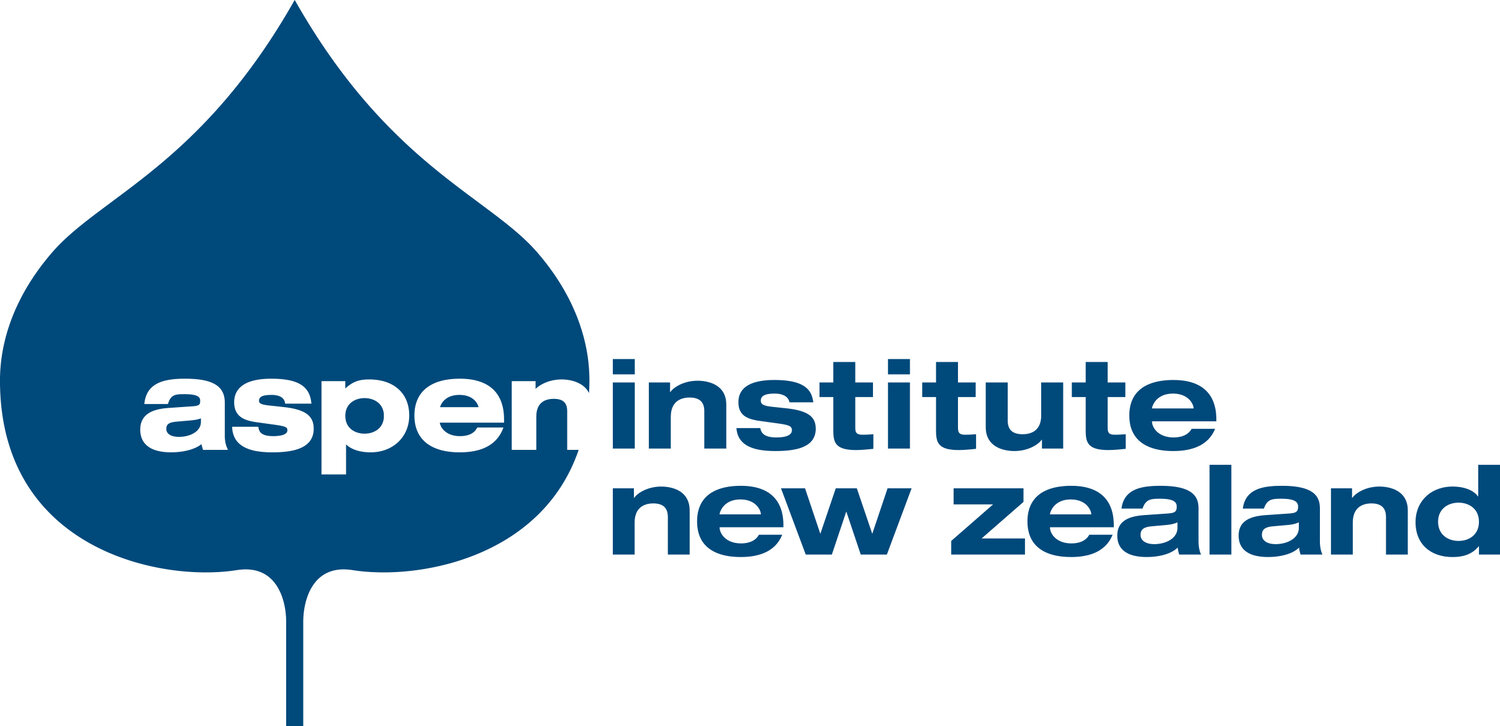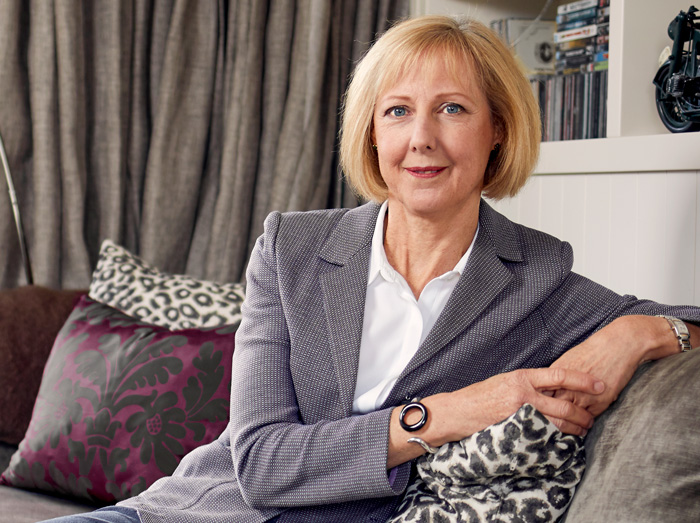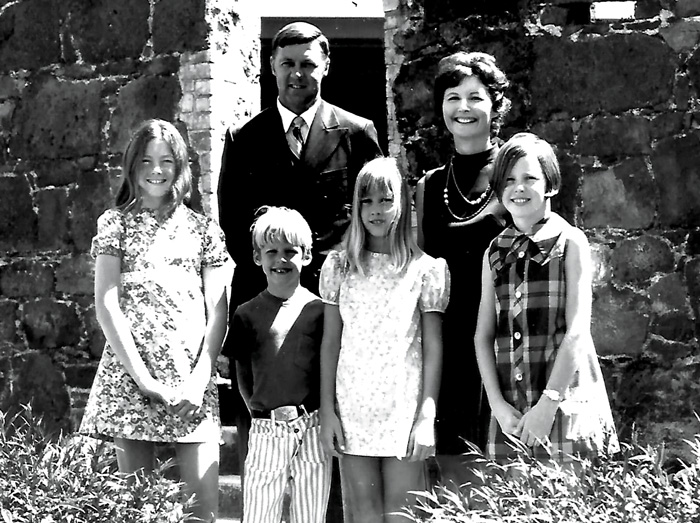The Kiwi Behind the Powerful Aspen Institute's Queenstown launch
Think of Queenstown and the images that spring to mind are of the great outdoors: adventure tourism, skiing, spectacular scenery. Now, the Otago town is adding a different string to its bow. It’s become the headquarters of the Aspen Institute NZ, the newest member of an international organisation dedicated to values-based global leadership and the exchange of ideas, and the first in the Southern Hemisphere.
It’s taken businesswoman and consultant Christine Maiden several years of planning to bring Aspen to Queenstown. It took a long time for Maiden herself to come home to Queenstown. She spent decades living and working around the world. While overseas, she became interested in the work of the Aspen Institute, a long-established and well-respected educational and policy studies organisation, with headquarters in Washington, DC.
Aspen has 11 partners in 14 countries and two permanent study retreats in the US. Non-partisan and non-ideological, Aspen aspires to foster leadership based on enduring values. It runs development programmes and forums aimed at building a global network of young leaders, experts and fellows able to work collaboratively across sectors rather than by nationality. Aspen trustees include former US secretaries of state Madeleine Albright and Condoleezza Rice, former Nato secretary-general Javier Solana, journalist Katie Couric, philanthropist Mike Bezos, former Walt Disney Company chief executive Michael Eisner, cellist Yo-Yo Ma and Queen Noor of Jordan.
Having an international perspective is nothing new to Maiden, who grew up in a globe-trotting family. Of Colin and Jenefor Maiden’s four children, she was the only one born here. The family lived in the UK, Canada and the US until Colin (later Sir Colin) returned to New Zealand, where he served as the University of Auckland’s vice-chancellor for 24 years and as a director of several major companies.
Business is in Maiden’s blood. She and husband Roger Sharp established DataCorp, and their careers took them to the US, Australia, Hong Kong and Singapore.
By then, though, Maiden was already well used to moving around the world.
Tell me about your parents, who started you very early on this international life.
My mother grew up in One Tree Hill and went to Epsom Girls’ Grammar. She met my father at the Mt Eden Tennis Club when she was 15 and he was 16. Dad is a tennis fanatic – his autobiography is called An Energetic Life. He became a Rhodes scholar, then did a PhD at Oxford. My mother joined him there, but there were rules, then, about having a partner, so they married in the UK, where my sister was born. Another sister was born in Quebec, and my brother in Santa Barbara, California.
Given your parents’ academic background, were books a big part of your lives?
We had a lot of them. When we were children, I vividly remember a time when bush fires around Santa Barbara were getting very close to our house. My mother was on her own with four children and had to evacuate with little notice. She grabbed the set of Encyclopaedia Britannica, my father’s tennis racquet and the four of us, threw us into the car and took off. The encyclopaedia was very important.
I have always been a voracious reader. As a child, I liked the classics – Jane Austen, Emily Brontë – and Gone with the Wind, which I was so intent on reading as an 11-year-old that I probably read it in one day. Before any holiday, we always visited the library to get a big supply of books.
Reading is still a big part of my life. I have just finished Washington Post publisher Katharine Graham’s Personal History, about her life and her family ownership of the paper. And I recently read Hit Refresh: The Quest to Rediscover Microsoft’s Soul and Imagine a Better Future for Everyone. It’s by Satya Nadella, Microsoft’s chief executive [with Greg Shaw and Jill Tracie Nichols]. He is a quiet, humble figure and is leading that company through a significant cultural change.
Were you an adaptable child, moving as you did periodically?
Until I was five, we lived in California. It’s an idyllic sort of place, so warm, and then we went to Michigan, where the climate was a lot harsher. But the biggest thing was moving from the US to New Zealand when I was nine. That was a stark contrast, particularly in schooling: our neighbourhood in Rochester was new and focused on the local school. We had a lot of freedom and I could run around in the woods and be quite adventurous.
When we moved to Epsom in Auckland, my freedom disappeared to some extent. We found our feet later on but, initially, you couldn’t explore the neighbourhood as freely. And at school we had to wear a hat, blazer and gloves. That was quite a shock. We three girls found that it took about a year to feel as if we belonged.
Did you think of yourselves as New Zealanders?
We were brought up as New Zealanders and always strongly identified as such. While we were living in the US, my parents took us back to New Zealand for a visit. When you come back with an American accent and using American words, people question who you are. But we were just New Zealanders who had lived in another place.
What happened after you left school?
I left school at 16, went to the University of Auckland and was keen to study commerce, because I liked the work my father had done in business. After graduating, I got a traineeship to work in the US and I went to Michigan, not far from where we were as children. I worked in the middle of Detroit. We had armed guards, thousands of employees, an enormous car park and the guards monitored the entry and exit. Detroit was a pretty unsettled place, with high unemployment, and I was told to stick to certain footpaths and be sure of where I was going. That was a big change from New Zealand.
At university, I had met Roger Sharp, who became my husband. He joined me in California once he finished his degree. Those two years in the US were fun, and I learnt a lot about the complexities of big corporations and advanced American thinking. I worked at Santa Clara, where Apple was starting up. Silicon Valley was in its early days.
And you and your husband joined that wave of start-ups?
Yes, we returned to New Zealand and set up DataCorp Systems, which was New Zealand’s first credit data-based company. After four years, we sold it to Baycorp and I joined McKinsey & Company in Australia, which started my consulting career. McKinsey is all about understanding complex pictures, thinking broadly, basing your understanding on facts and having diverse teams. We worked with doctors, historians, scientists and MBA graduates and that combination was magic for getting amazing results. In terms of my career, it was my most influential period.
Then we had five years in Hong Kong, then went to Singapore in 2011, which is an extraordinary country. It is very progressive in the development of its economy, its approach to people and its place in the world. I worked at the Chamber of Commerce and, in my entire working life, it is the closest I got to my New Zealand roots. It was my first time seeing New Zealand represented overseas, because we were in the same office as the High Commission, Tourism New Zealand and Trade & Enterprise.
What finally drew you home, and are you here for good?
New Zealand was always home. We have a daughter in Sydney and a son in Singapore, so we will always travel. We’d had six years in Singapore and, for all the good things, the climate is always the same and the terrain is limited. We wanted to live in a place we love. We’d been coming to Queenstown since 2002, and built a home in 2008, and it was time to come back. We decided work could come to us or we would go to it, rather than basing ourselves around work.
It’s not a retirement, though, is it, as you are the founder and chief executive of the Aspen Institute NZ? What’s it about?
The Aspen Institute started in the US in 1949 in Aspen, which happens to be Queenstown’s sister city. We promote values-based leadership and address big issues by finding common ground from diverse perspectives. That means drawing in political leaders, world leaders and people from education and academia to get together to discuss really important issues at community, regional, national or global level. We are nonpartisan and fortunate to have as our co-chairs former prime minister Helen Clark and Don McKinnon, who was Commonwealth secretary-general and also a foreign affairs minister. Both are well known to the Aspen Institute and both are great supporters. He is a member of the Aspen Ministers Forum, chaired by Madeleine Albright, and Helen has received awards from us. Her activities are aligned with Aspen’s health initiatives and programmes.
Why Queenstown?
Queenstown is an excellent location for longer forums and events, such as leadership programmes. It also works well for the three-day Socrates training programme. We also plan to hold short events in other centres.
What’s the benefit to this country of the Aspen Institute NZ?
Aspen will provide a forum for New Zealanders to debate difficult and long-term issues. We will also offer values-based training that will help us develop our own cohort of future leaders. And Aspen will allow businesses and individuals to take part in a global network, with access to leaders that they would not otherwise have. It works both ways – those groups and leaders will have access to New Zealand’s way of thinking on such subjects as the environment and sustainability.
But what about young New Zealanders, most of whom will not be well connected or privileged? What are you offering them?
Our priority is to focus on youth and the issues that matter to future generations, such as climate change and jobs. We’ll invite young people from all over New Zealand to participate, we’ll take programmes to them, like Teen Socrates, and open amazing international networks. Our children, our mokopuna, are the future.
In a world where there is a lot of belligerence from some leaders as well as emerging nationalism, do you think Aspen can make any difference?
I am always optimistic but, unfortunately, our differences are more visible or highlighted. But we can find our way through difficult issues. We always have far more in common than we think.
This article was first published in the April 27, 2019 issue of the New Zealand Listener.




